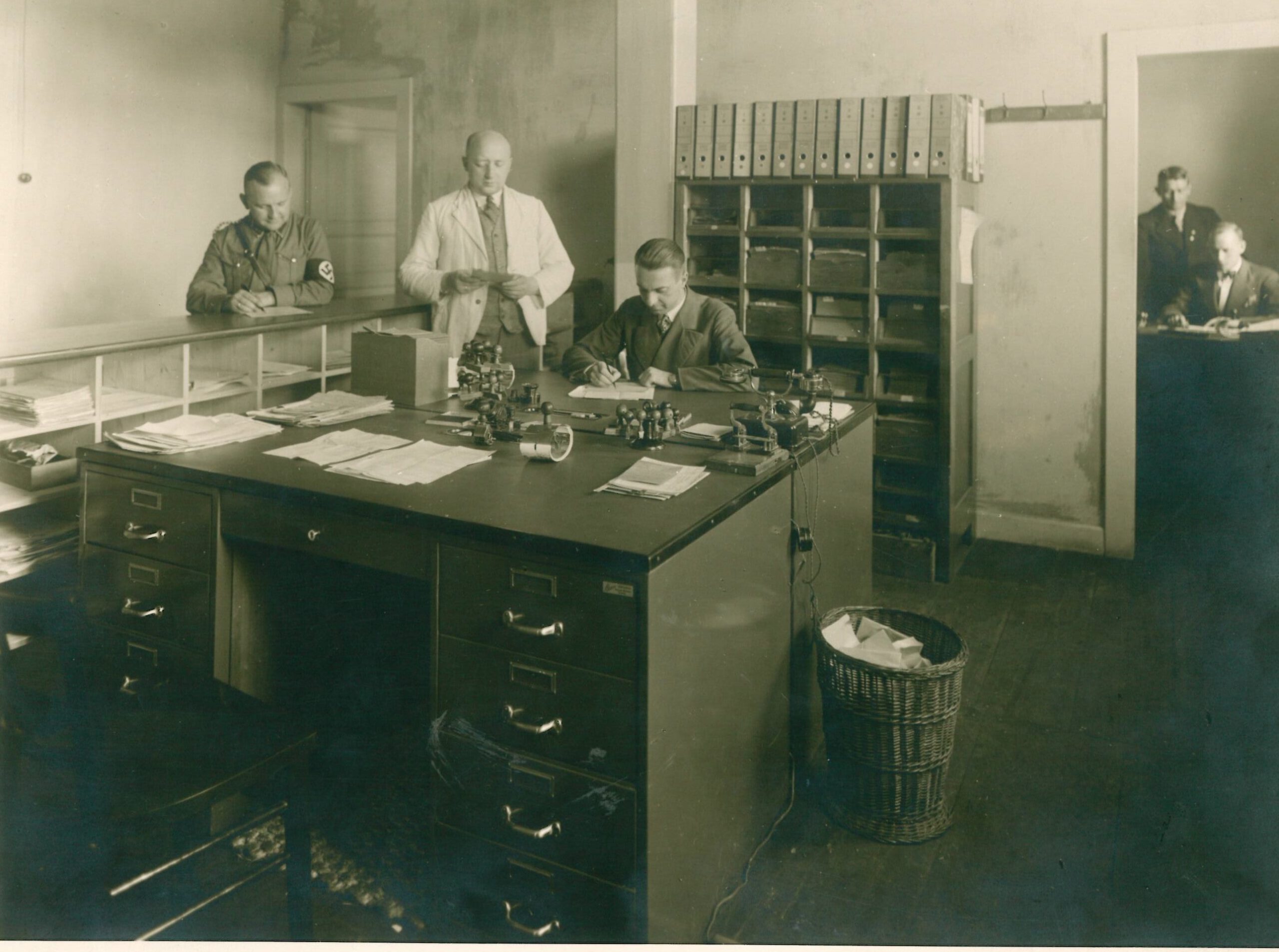
Beyond the regime’s small and elite leadership, numerous people were involved in the persecution and murder of European Jews under National Socialist rule. Without the cooperation of many ordinary Germans, the Holocaust would not have assumed such extraordinary proportions. Furthermore, in territories that came under German occupation or influence during the Second World War, a range of groups and individuals assisted the German authorities or used the opportunity to take action against Jews themselves.
The PMJ documents presented in this section shed light on the large and diverse group of perpetrators and those willing to help them. They provide insights into the behaviour, motives, and perceptions of Nazi Party activists, Wehrmacht soldiers, and doctors who participated in the everyday marginalization of Jews, assisted in bureaucratic procedures leading to their extermination, or engaged in violence themselves.
